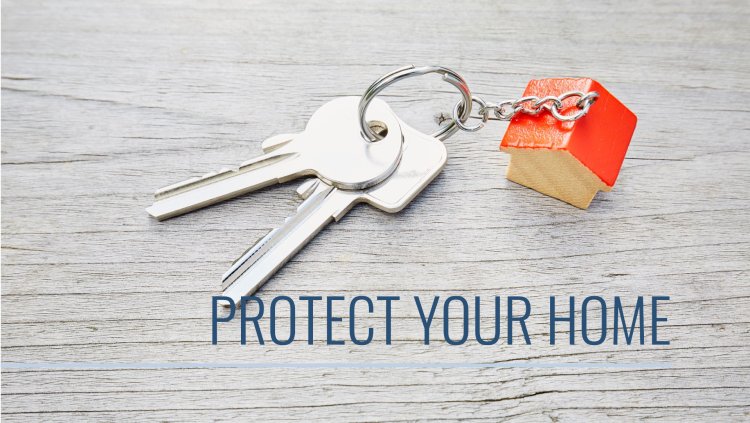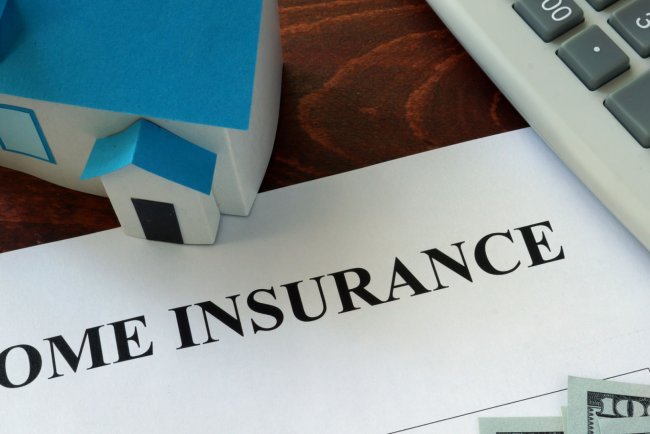How to Lower Home Insurance Costs
Lowering your home insurance costs involves a combination of understanding your coverage needs, shopping around for quotes, making adjustments to your policy, and taking proactive steps to reduce risk.

Home insurance is a crucial aspect of protecting your property and belongings from unforeseen events, but it doesn’t have to break the bank. With the right strategies, you can lower your home insurance costs without compromising on coverage. This guide explores various methods to reduce your home insurance premiums, providing actionable tips and insights to help you save money while keeping your home adequately insured.
Understand Your Coverage Needs
Before you start looking for ways to lower your insurance costs, it’s important to understand what coverage you need. Not all home insurance policies are created equal, and your needs will vary based on factors like the age of your home, its location, and your personal circumstances.
a. Evaluate Your Coverage
Review your current policy to determine what coverage you have and whether it aligns with your needs. Ensure you have adequate protection for your dwelling, personal property, liability, and additional living expenses. If you find that you have coverage that you don’t need, you might be able to adjust your policy to reduce costs.
b. Assess Risk Factors
Identify any risk factors associated with your property that could influence your insurance premium. For example, if you live in an area prone to flooding or wildfires, you might need additional coverage, which can affect your premium. Understanding these risks can help you make informed decisions about your coverage.
Shop Around for Quotes
One of the most effective ways to lower your home insurance costs is to shop around and compare quotes from different insurers. Insurance rates can vary significantly between companies, so taking the time to gather multiple quotes can help you find the best deal.
a. Use Online Tools
Many websites offer comparison tools that allow you to obtain quotes from multiple insurers at once. These tools can save you time and provide a broad view of the available options.
b. Consult Insurance Agents
Speaking with insurance agents can also be beneficial. They can help you understand the nuances of different policies and recommend options that suit your needs and budget.
Increase Your Deductible
Your deductible is the amount you pay out of pocket before your insurance coverage kicks in. Increasing your deductible can significantly lower your premium. However, it’s important to ensure that you can comfortably afford the higher deductible in case you need to make a claim.
a. Calculate the Impact
Use online calculators to estimate how increasing your deductible will impact your premium. This can help you decide if it’s a viable option for you.
b. Balance Deductible and Premium
Find a balance between a deductible amount that lowers your premium and an amount that you can afford to pay if needed. This balance will depend on your financial situation and risk tolerance.
Bundle Your Policies
Many insurance companies offer discounts for bundling multiple policies, such as home and auto insurance. Bundling can lead to significant savings, so consider consolidating your insurance needs with one provider.
a. Explore Bundling Discounts
Check with your current insurance provider to see if they offer discounts for bundling. If not, compare quotes from other companies that do offer bundling discounts.
b. Evaluate Overall Savings
When bundling policies, ensure that you’re getting the best overall value. Sometimes, a lower premium from bundling might come with reduced coverage, so it’s important to evaluate the total benefits.
Improve Home Security
Enhancing your home’s security can reduce the risk of theft and damage, leading to lower insurance premiums. Many insurers offer discounts for homes with updated security features.
a. Install Security Systems
Consider installing a monitored security system, including alarms, cameras, and motion detectors. These systems can deter burglars and provide evidence in case of an incident, potentially lowering your insurance costs.
b. Upgrade Safety Measures
In addition to security systems, upgrading safety features such as smoke detectors, carbon monoxide detectors, and fire extinguishers can also contribute to lower premiums. Ensure these devices are regularly maintained and functioning.
Maintain a Good Credit Score
Your credit score can impact your insurance premiums. Insurers often use credit-based insurance scores to assess risk, and a higher score can lead to lower rates.
a. Check Your Credit Report
Regularly review your credit report to ensure its accuracy. Address any errors or issues that could negatively affect your credit score.
b. Improve Your Credit Score
If your credit score is less than stellar, work on improving it by paying bills on time, reducing debt, and maintaining a low credit utilization ratio. A better credit score can result in lower insurance premiums.
Take Advantage of Discounts
Insurance companies offer various discounts that can lower your premium. Make sure to ask about any discounts you may qualify for and take advantage of them.
a. Common Discounts
Some common discounts include those for having a new home, being a senior citizen, or having a claims-free history. Additionally, some insurers offer discounts for participating in loss prevention programs or for being a member of certain professional organizations.
b. Loyalty and Referral Discounts
Inquire about discounts for being a loyal customer or for referring friends and family. Many insurers offer these types of discounts to encourage customer retention and referrals.
Update Your Home’s Features
The condition and features of your home can impact your insurance premiums. Regular updates and maintenance can help reduce costs.
a. Renovations and Updates
Consider making home improvements that reduce risk, such as upgrading your roof, plumbing, and electrical systems. Insurers may offer lower premiums for homes with updated features that are less likely to suffer damage.
b. Maintain Your Home
Regular maintenance, such as cleaning gutters, repairing leaks, and addressing potential hazards, can prevent issues that could lead to insurance claims. A well-maintained home is less likely to result in frequent claims, potentially lowering your premiums.
Consider Actual Cash Value vs. Replacement Cost
When choosing your policy, you’ll need to decide between actual cash value (ACV) and replacement cost coverage. ACV policies pay out based on the depreciated value of your property, while replacement cost policies cover the full cost of replacing damaged or destroyed items.
a. Evaluate Your Needs
Consider whether replacement cost or actual cash value is more suitable for your needs. Replacement cost policies generally have higher premiums, but they provide more comprehensive coverage.
b. Adjust Your Coverage
If you choose actual cash value coverage, ensure that it aligns with your financial situation and risk tolerance. This option can help lower premiums but may result in lower payouts in the event of a claim.
Review and Update Your Policy Regularly
Insurance needs can change over time, and regularly reviewing your policy ensures that you have adequate coverage without overpaying.
a. Annual Review
Review your policy annually to ensure that it still meets your needs. Update your coverage based on any changes to your home or personal circumstances.
b. Shop for New Quotes
Periodically shopping for new quotes can help you identify opportunities for savings. Insurance rates and offerings can change, and staying informed about the latest options can help you secure the best rates.
Lowering your home insurance costs involves a combination of understanding your coverage needs, shopping around for quotes, making adjustments to your policy, and taking proactive steps to reduce risk. By implementing these strategies, you can save money on your premiums while ensuring that your home remains adequately protected. Remember that the goal is to find a balance between affordability and adequate coverage, so you can enjoy peace of mind knowing that your home and belongings are well-protected.
FAQs: How to Lower Home Insurance Costs
1. What are the main factors that affect home insurance premiums?
Home insurance premiums are influenced by factors such as the age and condition of your home, its location, your credit score, the level of coverage you choose, and your home’s security features. Additionally, claims history and the presence of safety upgrades can impact your premium.
2. How can increasing my deductible help reduce my home insurance costs?
Increasing your deductible means you’ll pay more out-of-pocket in the event of a claim, but your insurance premium will be lower. This trade-off can result in significant savings on your monthly or annual premiums, provided you can afford the higher deductible if a claim arises.
3. Are there any discounts available for home insurance?
Yes, many insurers offer various discounts that can lower your premium. These may include discounts for bundling home and auto insurance, installing security systems, maintaining a claims-free history, or being a member of certain organizations. Always ask your insurer about available discounts.
4. How can bundling home and auto insurance help me save money?
Bundling home and auto insurance with the same provider often results in a discount on both policies. Insurers reward customers for consolidating their insurance needs, which can lead to substantial savings.
5. What steps can I take to improve my home’s security and potentially lower my insurance costs?
To improve your home’s security, consider installing a monitored security system with alarms, cameras, and motion detectors. Additionally, upgrading safety features such as smoke detectors, carbon monoxide detectors, and fire extinguishers can also contribute to lower premiums.
6. How does my credit score impact my home insurance premium?
Many insurers use credit-based insurance scores to assess risk. A higher credit score generally indicates lower risk, which can result in lower insurance premiums. Maintaining a good credit score by paying bills on time and managing debt effectively can help you secure better rates.
7. What should I consider when choosing between actual cash value and replacement cost coverage?
Actual cash value coverage pays out based on the depreciated value of your property, while replacement cost coverage provides the full amount needed to replace damaged or destroyed items. Replacement cost policies typically have higher premiums but offer more comprehensive coverage.
8. How often should I review my home insurance policy?
It’s a good idea to review your home insurance policy annually to ensure it meets your current needs. Regular reviews help you make adjustments based on changes in your home, personal circumstances, or insurance offerings, potentially leading to savings.
9. What should I do if I find a lower premium with a different insurer?
If you find a lower premium with a different insurer, compare the coverage options and terms to ensure you’re not sacrificing important protection for the sake of a lower price. If the new policy meets your needs, you can consider switching insurers to take advantage of the savings.
10. Are there any specific home improvements that can lower my insurance premium?
Yes, home improvements that reduce risk, such as upgrading your roof, plumbing, and electrical systems, can potentially lower your insurance premium. Regular maintenance and addressing potential hazards can also prevent issues that might lead to claims.
11. How can I find out if I qualify for insurance discounts?
Contact your insurance provider and inquire about available discounts. You can also ask about discounts for home safety features, bundling policies, or maintaining a claims-free history. Providers often have specific requirements for each discount, so make sure to provide any necessary information.
12. What is the benefit of using online comparison tools for home insurance?
Online comparison tools allow you to obtain quotes from multiple insurers quickly and efficiently. This helps you compare coverage options and premiums, making it easier to find the best deal without having to contact each insurer individually.
13. How can I improve my credit score to potentially lower my insurance premiums?
To improve your credit score, focus on paying bills on time, reducing credit card balances, avoiding new credit inquiries, and correcting any errors on your credit report. A higher credit score can lead to lower insurance premiums.
14. What are some common risk factors that can affect home insurance premiums?
Common risk factors include the home’s location (e.g., proximity to flood zones or high-crime areas), its age and condition, and the presence of safety hazards. Additionally, high-risk features like swimming pools or wood stoves may also impact premiums.
15. Can regular home maintenance affect my insurance premiums?
Yes, regular home maintenance can help prevent issues that might lead to insurance claims, which can positively impact your premiums. Keeping your home in good condition and addressing potential hazards can demonstrate to insurers that your home is less likely to experience problems.
These FAQs aim to address common concerns and questions about lowering home insurance costs, helping you make informed decisions to reduce your premiums while maintaining adequate coverage.
What's Your Reaction?



















